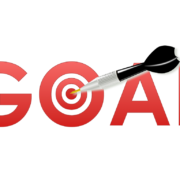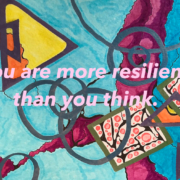First, why do we blush? The feeling accompanied by blushing is an exquisite sensitivity to the feeling of embarrassment. Embarrassment is often tied to shame. Blushing is an automatic, uncontrollable response to these feelings. It happens in humans because our facial veins react to this adrenaline. So when the limbic system is triggered, the blood rushes to the face causing the redness to appear. There is a lot of basic (scientific) info on this reaction here, here and here if you are interested.
But what you really want to know is how to control blushing. Right?

Social Anxiety Is Associated With Blushing
If you experience social anxiety, you may often feel you are being judged or criticized harshly, and you may have trouble with any public performance or social interaction you consider less than perfect. You often look back on particular social interactions, feeling the need to continually rehash what went wrong with what you said, did, wore, or expressed.
You may also be afraid of physical sensations that are part of felt triggers such as a racing heart, shaking hands, dry mouth or our topic today: blushing. Do you constantly compare yourself with others to see how you stack up? Is a lot of your self worth is derived from what others think, or what you believe others think of you? Does a casually tossed off opinion can destroy your day and send you off into a downward spiral of rumination and self incrimination?You might also tend to worry days or weeks before a dreaded situation such as a presentation, exam, new responsibility, or social engagement.
So How Do You Control Blushing?
First, you must realize that the first blush response is automatic, the same way our first response to something worrying is. Your amygdala’s (or lizard brain’s) job is to warn you of any impending danger, real or not. No one can stop that. But what you CAN do is to monitor how you react to the sensation as you feel it. Changing the level of importance you assign to your red face will, paradoxically reduce how often it happens, and how long it lasts. This takes practice, and a shift in how you judge yourself.
“Blushing is evidence of authenticity in a world woefully short of it.”—Page Rutledge, MPH, MSW, LCSW, CHt
Second, if blushing is endemic to self judgement, shame, and embarrassment, then changing your self-evaluation is paramount. Let’s say you have to give a presentation at work, and you are pretty sure you will blush. Is it because you think you will sound dumb? Inexperienced? As if you have no confidence? If you are nodding yes, then I submit to you that you are discounting the fact that you have been asked to do this assignment in the first place.
And if you gravitate towards the introverted end of the spectrum, your voice is even more important in a world of shouters! Companies, which means people, often rush past those who take a bit longer to tell their stories. They do this at their peril. When you don’t give equal voice to those who may not be as loud, or as comfortable with public expression, you quash creative problem solving. And that leads to the death of innovation.
Your Voice Is Important
Your voice is important. Learn to tolerate your discomfort with a bit of practice. And if you learn this, you are well on your way to changing your relationship with your anxiety—a permanent solution that requires courage and consistency.
If you would like a bit of help with this, call me or contact me here. I have helped a lot of people realize that soft is not weak. And I can help you, too
P.S. You can also schedule online by scrolling to the bottom on the homepage and pressing the blue button. Select new client if it is your first time. Existing clients may simply select “existing.”










